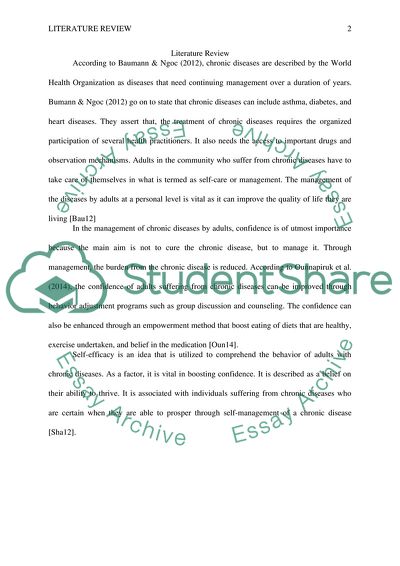Review of Literature Essay Example | Topics and Well Written Essays - 500 words. https://studentshare.org/medical-science/1841216-effectiveness-of-a-self-efficacy-program-for-persons-with-diabetes
Review of Literature Essay Example | Topics and Well Written Essays - 500 Words. https://studentshare.org/medical-science/1841216-effectiveness-of-a-self-efficacy-program-for-persons-with-diabetes.


